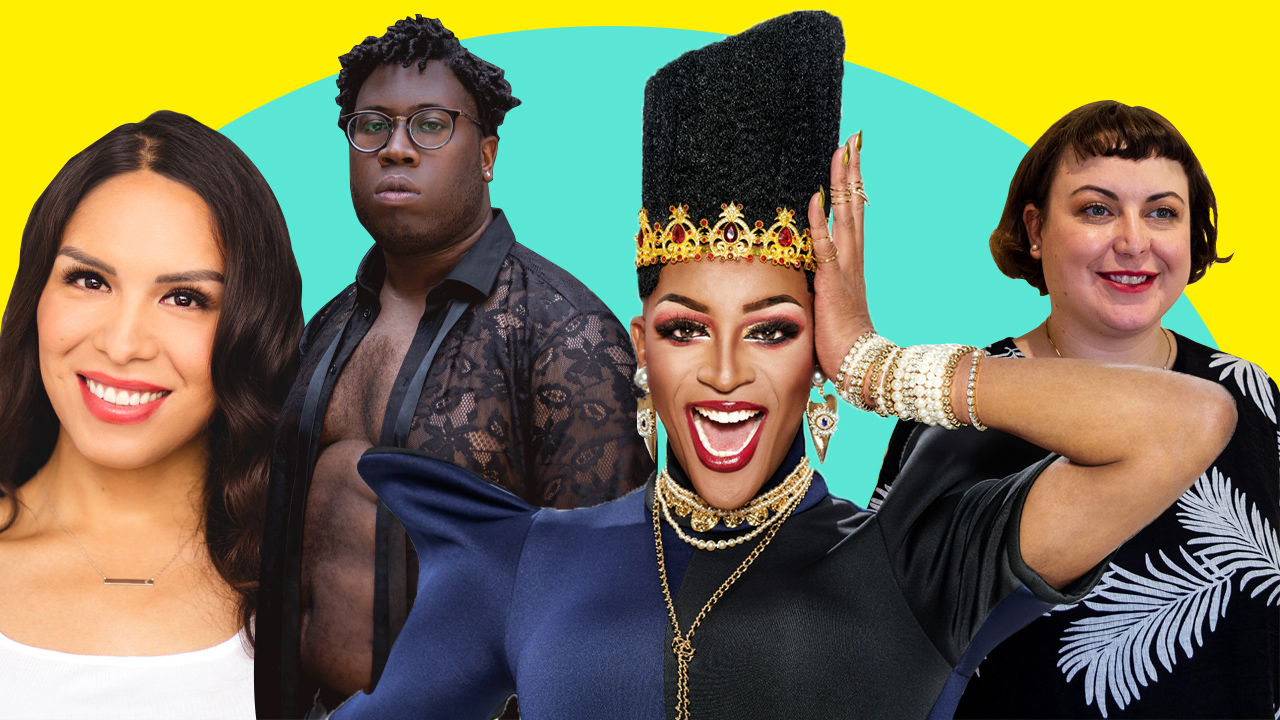How Queer Folks Across Canada Are Celebrating Pride from a Distance
"We will rise, we will dance. We will exist, and we will resist."
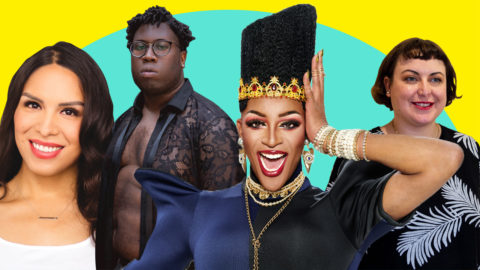
To be queer is to know, at least on some level, the meaning of isolation. Many queer people grow up feeling isolated or alone, which is why we invest so heavily in community—in chosen families, queer spaces, and festivals that bring us together.
When COVID-19 hit, it was immediately clear Pride festivities across Canada would be drastically different this year, but not only because of physical distancing measures. For starters, many of us are struggling. Quarantine has been difficult for everyone, but particularly for queer people, who already face barriers in accessing quality health care, were disproportionately in precarious work situations pre-COVID, and often lack the safety net of a familial home. These disparities are even harsher for BIPOC queers and transgender people, who are especially vulnerable to the effects of this pandemic.
This year’s Pride Month is also intersecting with widespread protests across the globe in support of the Black Lives Matter movement. Queer community leaders like Janaya Khan have reminded us that Pride as we know it grew out of the 1969 Stonewall Riots, which were a response to police harassment and brutality led by BIPOC queer heroes like Marsha P. Johnson and Sylvia Rivera.
So what does Pride look like this year, in the midst of a global pandemic and a movement inherently tied to the birth of gay rights? FLARE asked a group of queer people (and one ally!) from across Canada to share their Pride plans and speak about how they’re finding community and queer joy during this cultural moment.
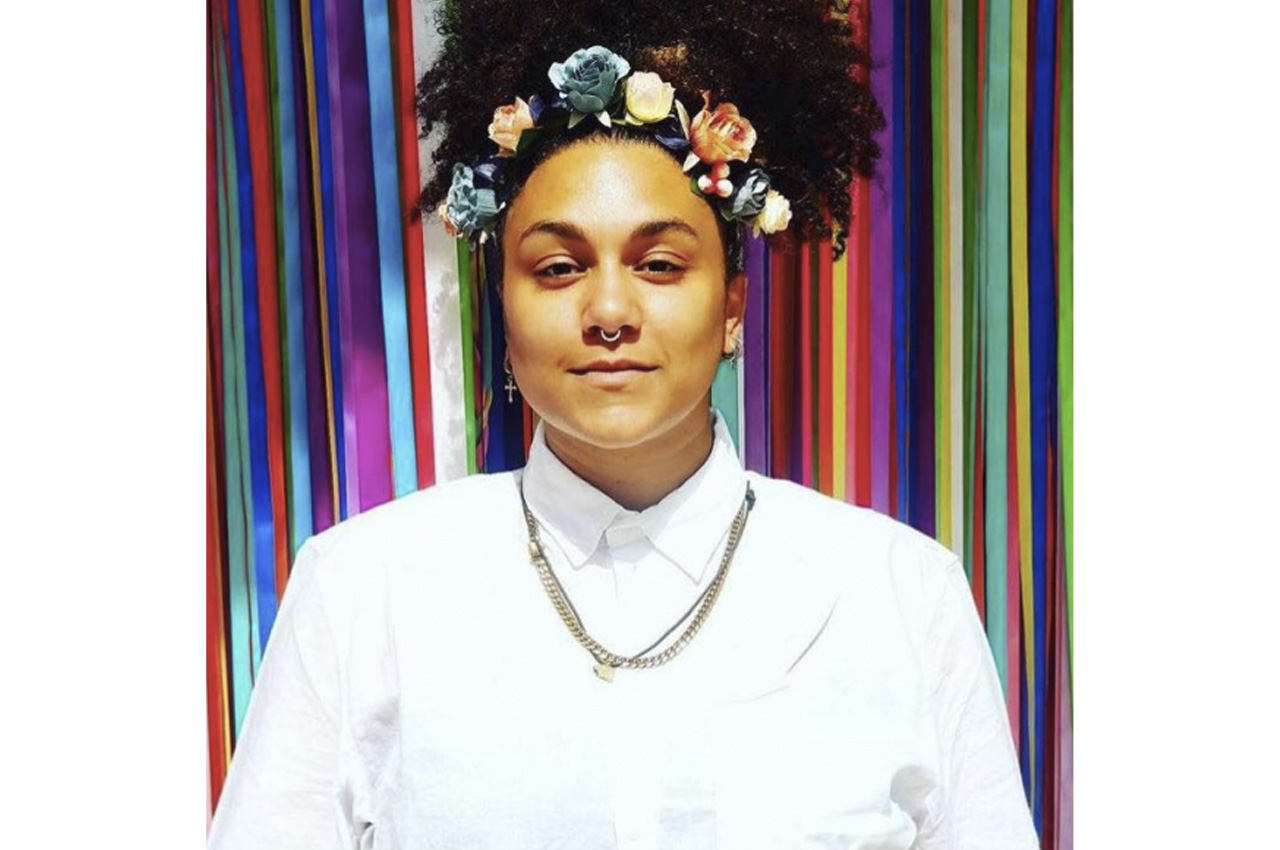
Kate MacDonald, activist, artist, educator
“Usually, a big motivation for me to be out during Pride is to take up space physically. To be seen as a Black body holding space in Halifax. So, how can that same priority be taken virtually? How do I participate in the same capacity? Clearly the big gatherings of people won’t be the same and I’m not sure where things stand with having a parade. I’m hoping to attend lots of lectures and speaker series virtually, which actually is one of the only things staying consistent for me—since I was about 16, I’ve been attending the speaker series during Halifax Pride.
“I’m hoping to see folks from marginalized and racialized communities speaking of their lived experiences. As hard as this time is proving to be it does allow us to do new things, more things. I am hoping the “new” and “more” is welcomed into the planning of Pride. I’m also hoping it will be easier to involve more folks because there won’t be the added barrier of travel or access. I am interested to see in what ways this Pride can be innovative in writing new history and stories surrounding the legacy of Pride itself.
“Halifax’s LGBTQI bar Menz and Mollyz closed this spring and I wrote about all the complex emotions I feel around its closing. I know a lot of folks relied on that space to see people and feel connected. There is a loss in our community around having a gathering space. But something I mentioned in my writing is now we can name what problems we had with Menz and articulate solutions to dream a new beautiful haven into existence. When there is an absence of something there is the possibility for anything.”
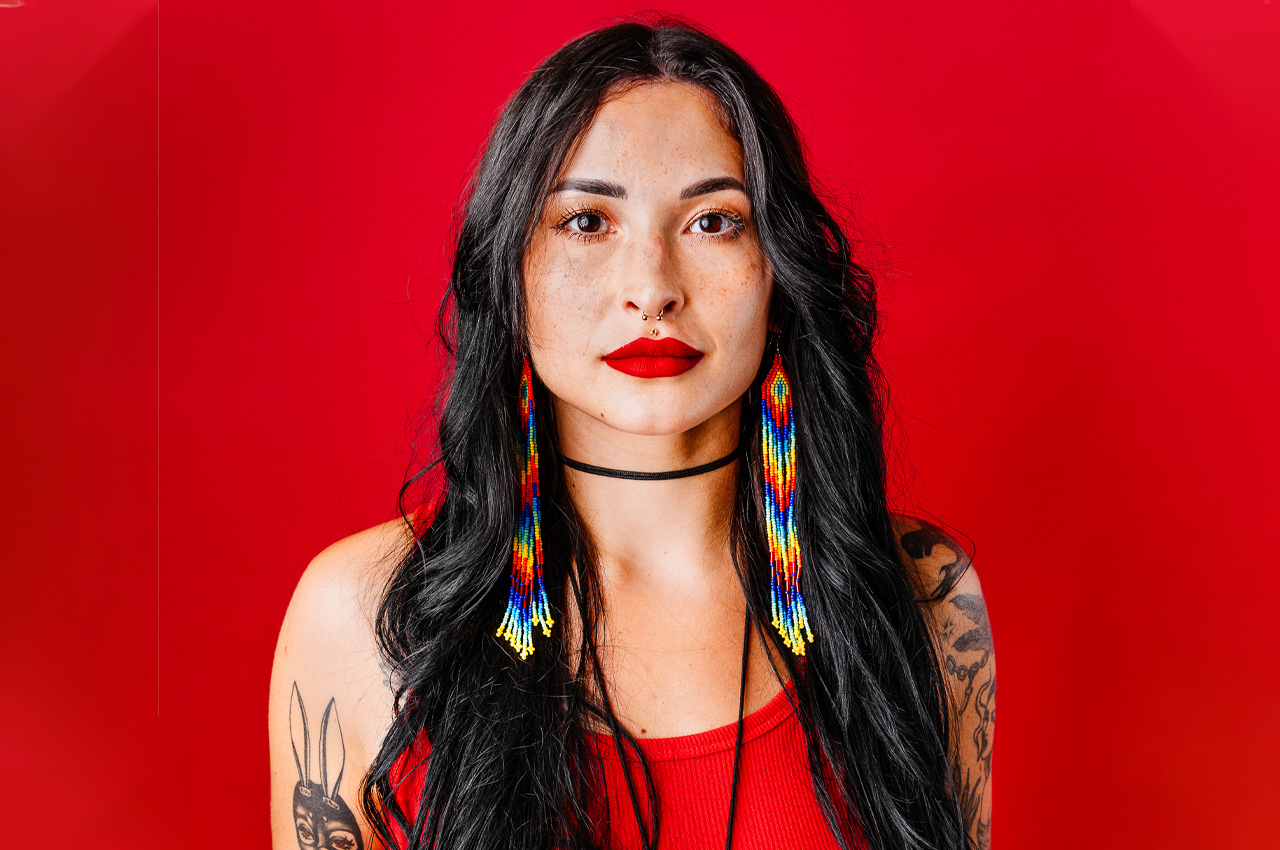
Adrienne Huard, MFA candidate, curator, pole dancer, and hard femme
“Pride celebrations have always been a point of contention for me. The last one I attended was in 2017 when I was living in Tio’tiá:ke (Montreal). While it’s incredible to see members from the 2SLGBTQIA+ community gather and express queer joy, I am Anishinaabe and I’ve never truly felt seen as a Two Spirit/queer Indigenous woman (Two Spirit or niizh manitoowak is an umbrella term specifically for Indigenous people who sit within the queer spectrum and do not subscribe to Western notions of gender and sexuality).
“Here in Winnipeg, we host a Two Spirit Pow Wow which is scheduled on the same weekend as the Pride festivities. I proudly sit on its planning committee. It’s a space where Indigenous queers gather to dance and honour our ancestors while ensuring our spiritual, cultural and physical safety on Treaty 1 territory. Although the pow wow has been postponed, I was still able to reach out to my Two Spirit kin to share a virtual hug and connect during these uncertain times.”
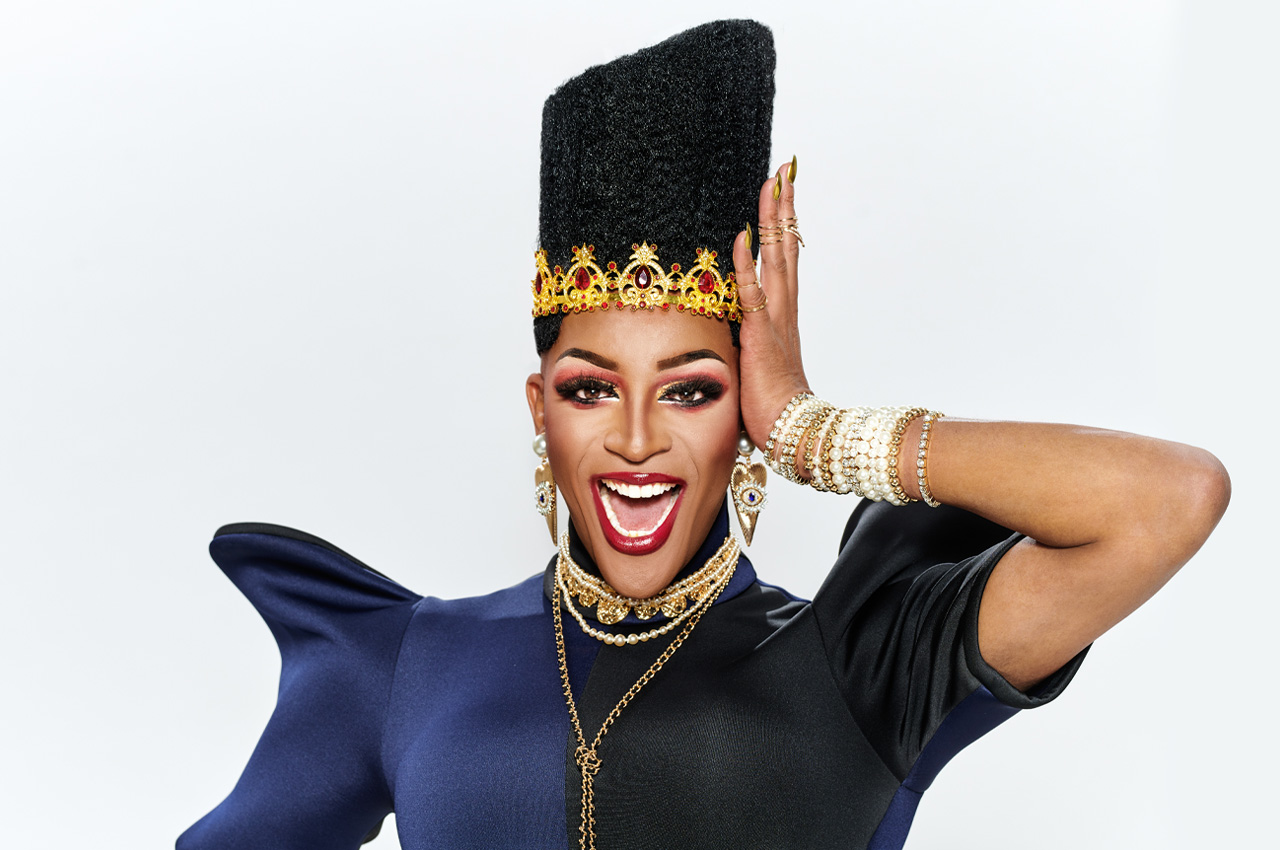
Tynomi Banks, Canada’s Drag Race drag queen
“Physical distancing has changed my Pride plans dramatically. Usually I’m out and about showing my support for fellow performers, making new friends, and headlining shows. This year I’m putting my energy into my online shows that can now be seen across the world. Even though the connection isn’t the same, I’ve gotten the opportunity to perform with some of the world’s best drag queens in virtual performances, which may not have happened otherwise.
“This year I’m focusing on “Drag Ball presented by Crave” where all of the queens from Canada’s Drag Race will be performing on June 27! (Editor’s note: fans can watch at 8pm ET via Pride Toronto’s Twitch channel or Drag Race on Crave’s YouTube page.) I’m really excited about that and the fact it will be available for more than just in-person Toronto audiences to see. I have something amazing planned and I know everyone else is going to bring it to the (virtual) stage as well.
“Right now I’m sharing content through my Insta stories to stay connected to my community, which people seem to really enjoy and that makes me very happy. I’m also doing online performances. I’ve tried to expand these shows by answering questions from the audience and taking requests. I’m trying to do as much as I can virtually. And I’m trying to look at the silver lining of it all and hope something new and wonderful comes from this pandemic, and that Pride is bigger and better than ever next year. Mostly, I just want to be able to connect with my friends again.”
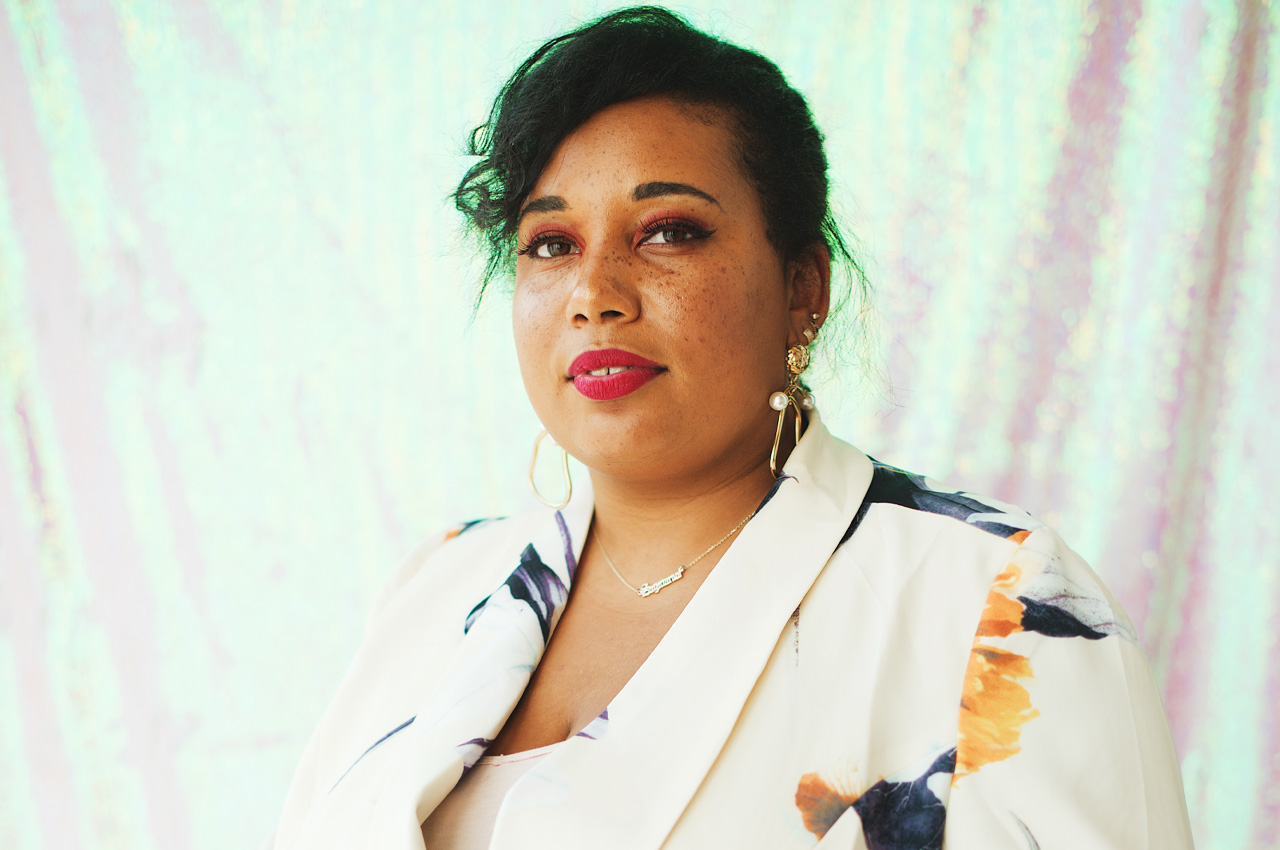
Cicely Belle Blain, activist and consultant at Cicely Blain Consulting
“Pride has been very tricky for me since I became an activist with Black Lives Matter Vancouver and we launched a campaign to remove the police from Pride. That garnered a lot of hate towards me and the Black queer community here in Vancouver. Going to Pride events since then has made me feel anxious and unsure which events were safe for me and which I felt comfortable supporting.
“One of the reasons we started the Black Lives Matter Vancouver’s annual Pride event is because Pride in its current iteration has become very corporate and very whitewashed and has erased the very radical origins of Pride. The birth of Pride, the Stonewall Riots, was spearheaded by Black and Latinx trans women, specifically Marsha P. Johnson and Sylvia Rivera but many other folks as well, as a retaliation against police brutality. When folks are remembering George Floyd, Mike Brown and Tamir Rice and those names that we know, they should also be remembering Black trans women especially, and Black trans men and non-binary folks who have also been victims of violence like Tony McDade, Rekia Boyd, and Tamika Washington; Black queer trans folks who don’t get their stories told.
“It actually feels good to engage with Pride this year with my close friends from the safety of home. I ordered myself a new tracksuit that has rainbows on it. I feel great about staying at home and lounging in it. I’ll probably watch some livestreams and watch my friends do drag on Instagram Live. These past few weeks have been very overwhelming. We were kind of just getting over the fear and anxiety of the pandemic and then we moved into this weird space where it feels like the world is burning around us. I try to stay present and to remember how far we’ve come and to be grateful for things my ancestors have done to enhance the lives and experiences of queer and trans people. I try to spend as much time as possible with my friends and community and be surrounded by joy and happiness.”
Tafari Anthony, singer/songwriter, creator
“I don’t normally partake in Pride celebrations. Quite honestly, I’ve just never really felt there was much of a place for me at Pride. Though Pride boasts about being very diverse, I’ve often felt like I don’t really see myself represented in the events. The events tend to be geared towards a certain type of queer person without many options for the rest of us. So being physically distanced during this time hasn’t affected my Pride plans. But interestingly enough, physical distancing has opened up new Pride possibilities. I performed for my first Pride festival thanks to the Q Review’s One Love Live Festival, will be performing an extended version at Sudbury Pride on July 15, and am in talks with a couple of other Pride festivals as well.
“I spent the better part of May putting together a show in isolation with my band (Jim Toner, Mark Laidman, Ava Kay, Mike Celia, Stacey Kay & Marc Funkenhauser). I really wanted to figure out a way to create that live show energy for this performance, so I had to get really creative. I had each member of my band record and videotape themselves, and I did some creative editing to achieve. I then reached out to my friend, the drag queen Goldfish, and recorded an interview with them that ties the whole performance together.
“With the current state of the Black Lives Matter movement I have felt a greater sense of community—people are banding together now more than ever before. I was speaking with a friend about it and I came to a realization: I truly believe because the whole world has been going through the effects of COVID-19, most of us are in a place of feeling very united. To me, this created the perfect catalyst for a racial uprising that has been long overdue. Without the distractions of our nine-to-five jobs and our busy schedules, we can finally have those hard conversations about racism. I truly hope this is the one that will make those next major changes a reality.”
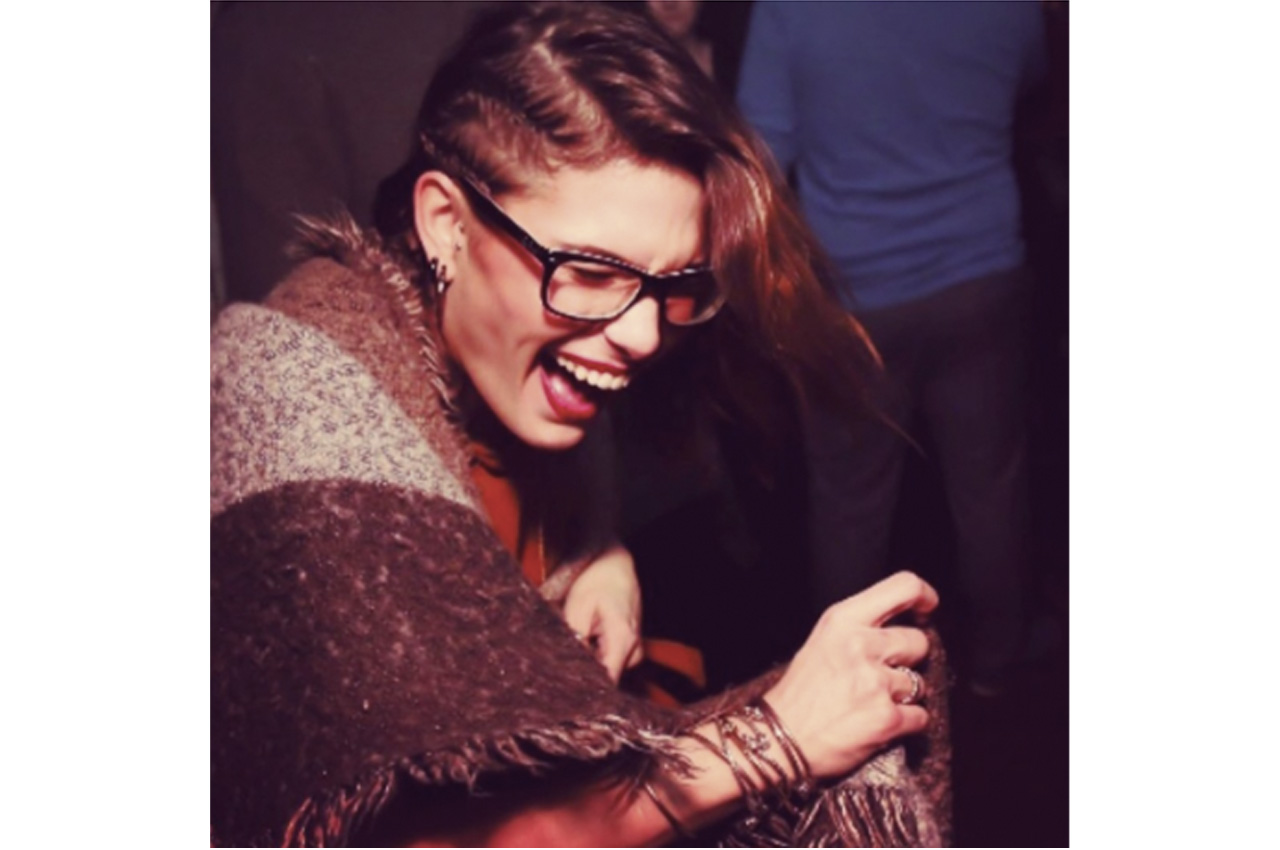
Alyssa Flanagan, activist and yoga teacher
“Pride is celebrated now more than it ever has been on Prince Edward Island. The queer community really comes together for Pride and you really feel the love with all of these beautiful connections and relationships. Usually I’m working during Pride, but this year I actually would have been able to attend. With the COVID-19 protocols, I’m not really sure what will happen with Pride in PEI this year. (Editor’s note: Pride PEI intends to move forward with a physical event and parade in some fashion.)
“Even before quarantine, digital socializing has always been a part of my life as a queer person. At one time, digital spaces were the only place I really felt connected to myself. Digital socializing has really helped me realize that being gay is more than okay. Community is so empowering. Whether it is online or in person, the queer community has become my family and I have learned—and am learning—so much in such a small amount of time.
“My Pride plans for this year will likely consist of gathering together with my new queer friendships I have been so fortunate to make in the last year. We will hopefully be able to have an amazing backyard party surrounded by all the love and colours, with all of us being six feet apart.”
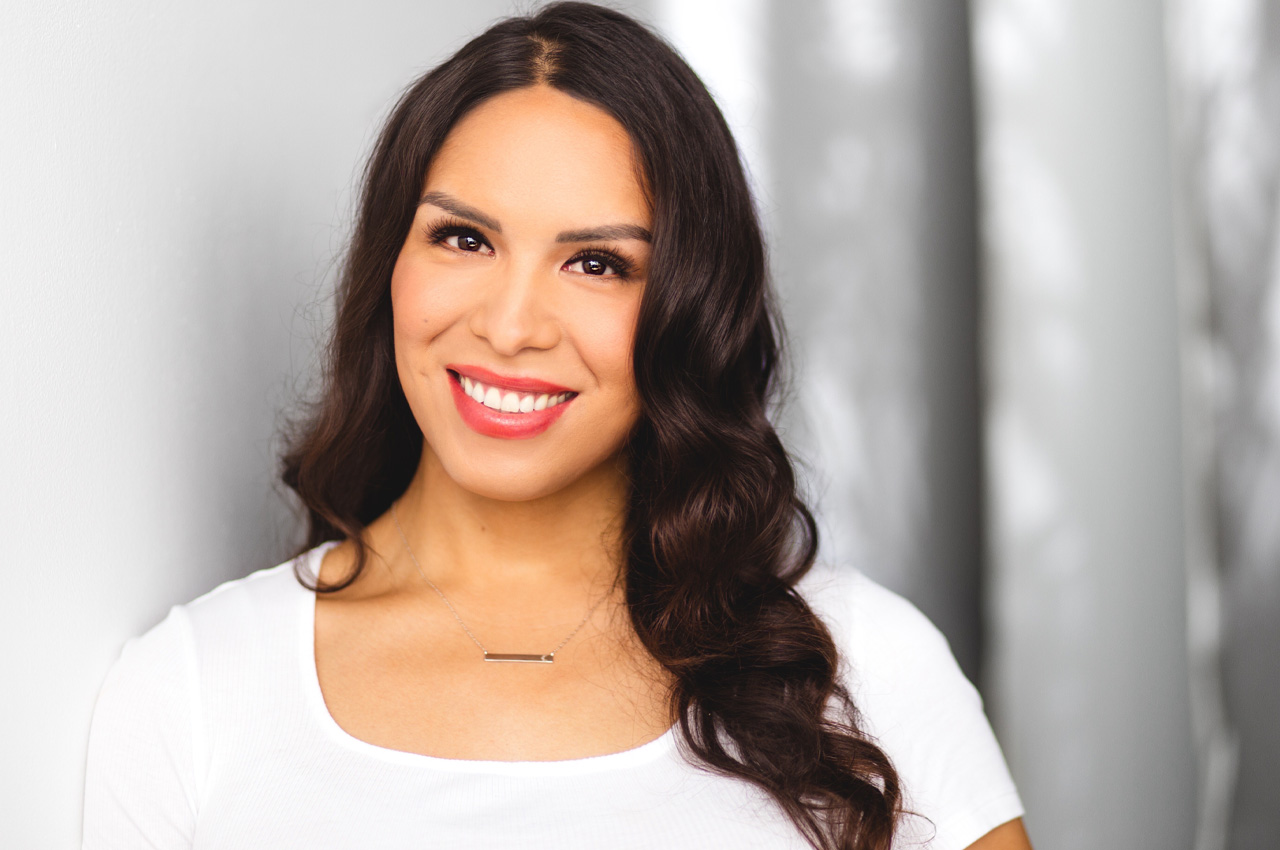
Kiley May, actor, artist, activist, and author of the upcoming book How To Love a Trans Girl
“This year, the circumstances are forcing me to be creative with my celebrations. I’m taking it as an opportunity to turn inward and be introspective, to reflect on what I love and celebrate about myself, and my journey of resistance and resilience as a Two Spirit Indigenous transgender woman. I’m also considering a peaceful, harmless act of resistance. I want to dress up in a provocative Pride outfit as usual and have myself a one-woman parade through the Queer Village in Toronto. If buying alcohol can be deemed essential, I am declaring Pride essential for myself.
“These strange times have brought out empathy in people, acts of kindness, caring and tenderness. I’m seeing community members hold each other up. So many queer and trans people, particularly people of colour, have reached out to me to ask how I’m doing and if I need anything. I’ve been doing the same for others, too. General wellness checks go a long way.
“It’s essential this year, as always, to remember that Pride—which has been commercialized and co-opted by advertisers—started as a riot. Queer people of colour led the Stonewall riots as a response to police brutality and oppression. That happened 51 years ago, and I feel that what is happening now in 2020 is mirroring the past. Pride’s a rave, but it started as a riot. I think it’s both. If there is going to be a peaceful demonstration for Pride, I will be there. Because more than being an artist, I am an activist. I believe in liberty and I fight for our right to freedom and the pursuit of happiness. Activism and resistance are what brought us this far. We queers wouldn’t have the rights and freedoms we have now if the queers of the past stayed home and stayed quiet.
“We will rise, we will dance. We will exist, and we will resist.”
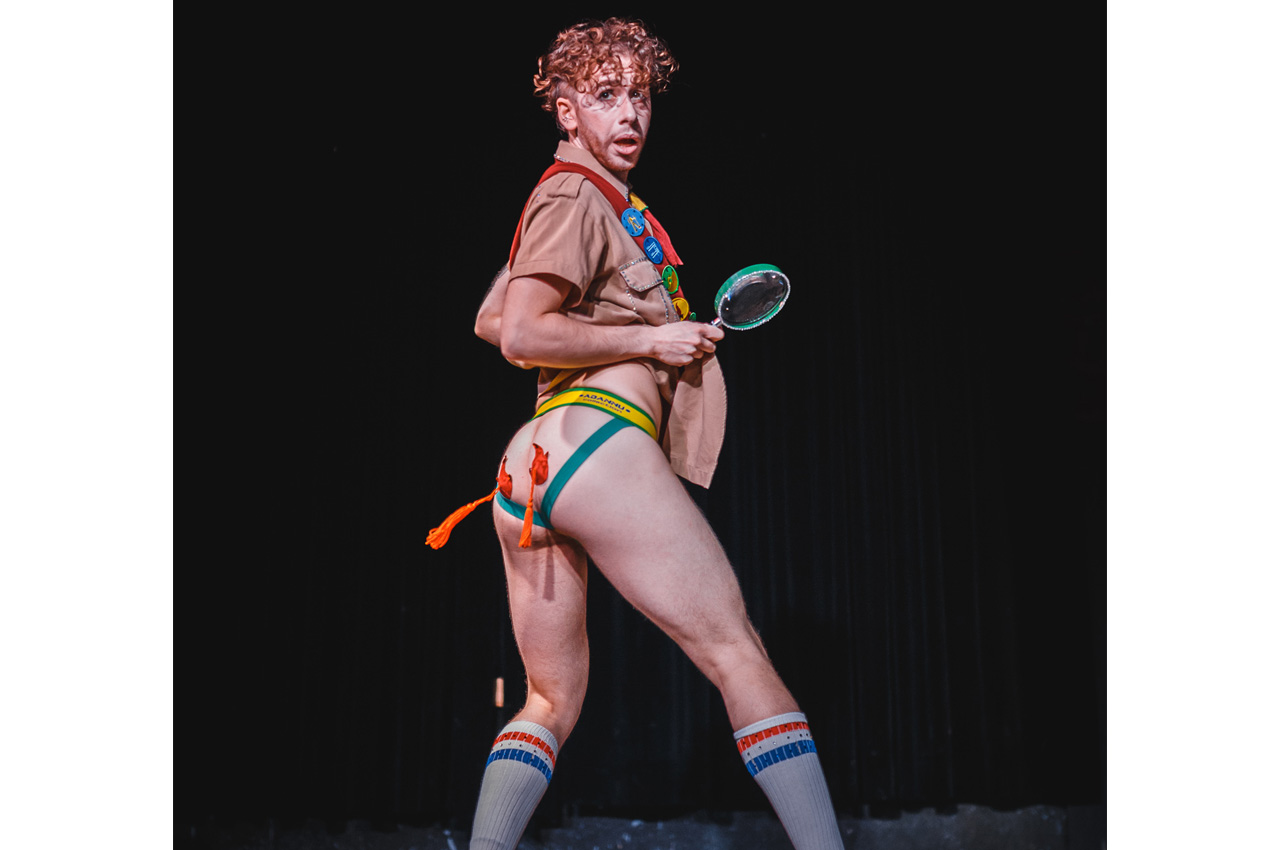
Ben Agiter, drag king, boylesque artist, healthcare worker
“Last year was my first Pride as a drag king and boylesque performer—and it was hands down my best Pride ever. Performing brought me to Pride in three different cities and my first burlesque festival, so I was looking forward to keeping up that momentum for 2020, and reconnecting with the friends I made.
“I work full-time in healthcare, and even with the added stress of the pandemic, I’m thankful for the stability and routine it provides. Doing drag and burlesque is like living a double life. Putting on the moustache, makeup, and rhinestones, and getting on stage as Ben Agiter gives me a surreal and euphoric feeling. Since COVID-19, I’ve done one online show, but lip-syncing alone at home in front of a crappy webcam left me feeling empty. There are tons of talented folks producing online shows and content, and I’m all for it—it’s just not for me. The pandemic has impacted my connection to the queer community, and my artistic expression, but I’m hoping it’s temporary.”
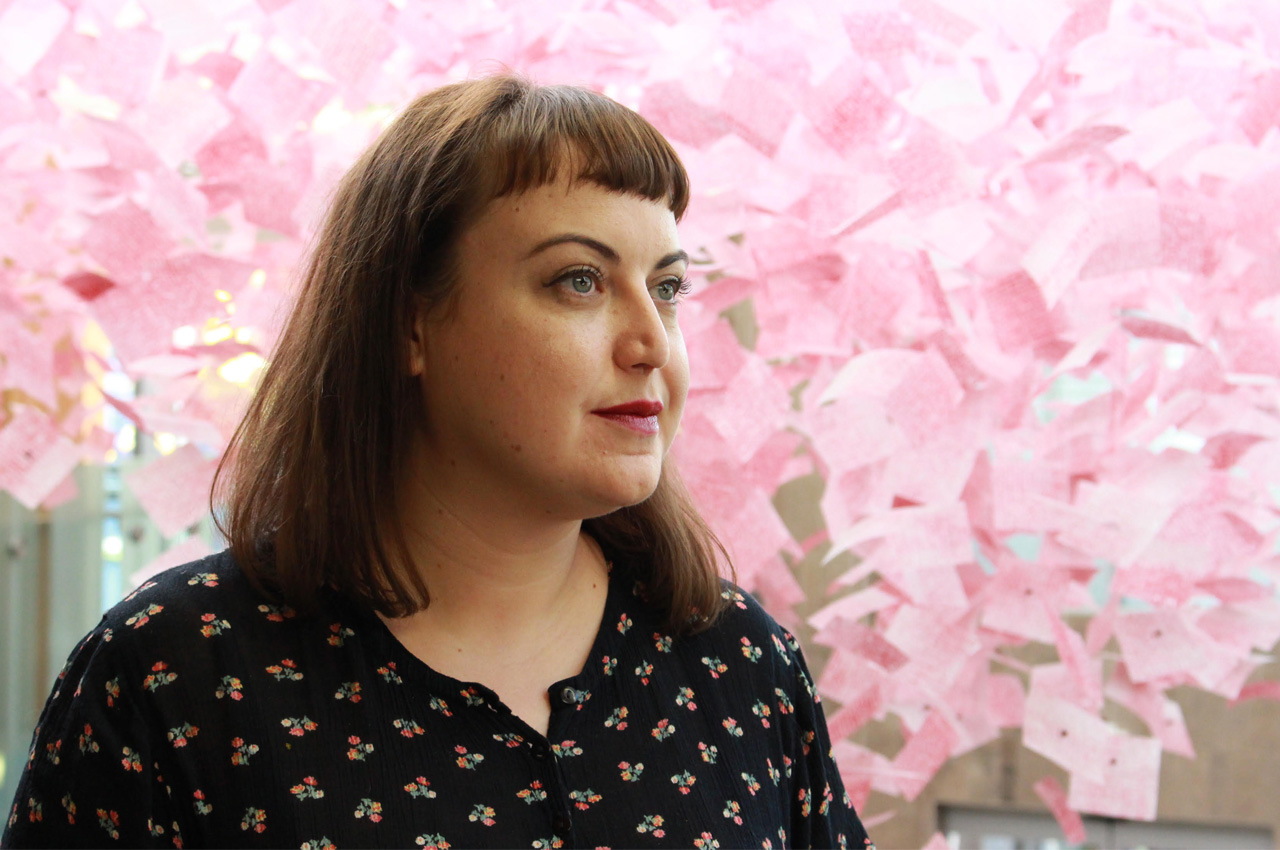
Ellie Anglin, artist, writer and library assistant
“Since quarantine started I have been helping to present digital LGBTQIA2S+ programming and content with a fabulously queer group of staff at Kitchener Public Library. We’re feeling the need more than ever to connect with LGBTQ+ folks in their homes, where they might be isolated from the community. We’ve been creating more explicitly queer virtual events, examining the library as a queer space and tagging an extensive collection of LGBTQ+ digital materials in our catalogue to make them more discoverable by folks at home.
“On the personal side of things, I’m enjoying hanging out with my wife and cats in our garden and am reading The Subtweet by Vivek Shraya. This year I’m also continuing learning about the history of Pride—how it started as a riot against police brutality led by trans and queer people of colour and how I owe my freedom to their emotional, intellectual, and physical labour. It’s infuriating that there is still so much need for protest today but it seems very appropriate that queer power and resistance should be galvanized behind the Black Lives Matter movement for Pride 2020. I was especially proud of my city on June 3 when Black Lives Matter Waterloo Region held a powerful protest of over 30,000 people in downtown Kitchener.”
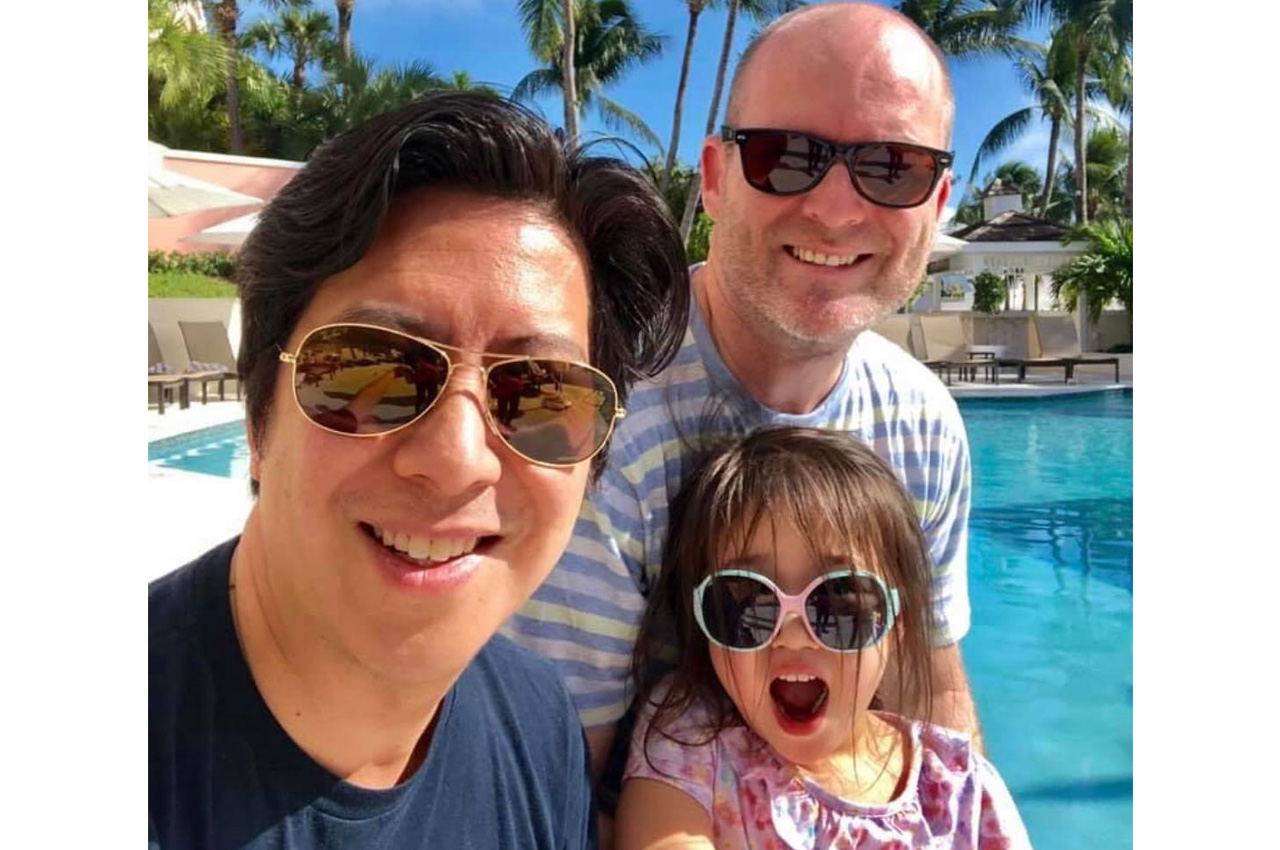
Austin Wong, entertainment lawyer, producer
“This is the first time in 20 years that I will not be celebrating Pride on Church St. in Toronto. Even after we adopted our daughter, we would take her down as a baby to watch the parade, and when she was asleep I would go out dancing. When she was two and three, she would wear rainbow dresses and accessories and we’d walk around the village. But with COVID-19, I’ve been taking social distancing seriously. We’ve been staying home and keeping in touch with friends by phone, social media, and the occasional Zoom.
“To celebrate Pride, we’ve been having a lot of family dance parties on the trampoline in our backyard. My four-year-old daughter can already identify every track of Lady Gaga’s new album, Chromatica. But for us, the rise of the Black Lives Matter protests have taken over the narrative from Pride this year. We’ve been discussing racism with our daughter, why the protests are happening, and why it’s important to speak out. So I feel Pride is getting back to its protest roots this year, and I think we’ll be better off for it.”
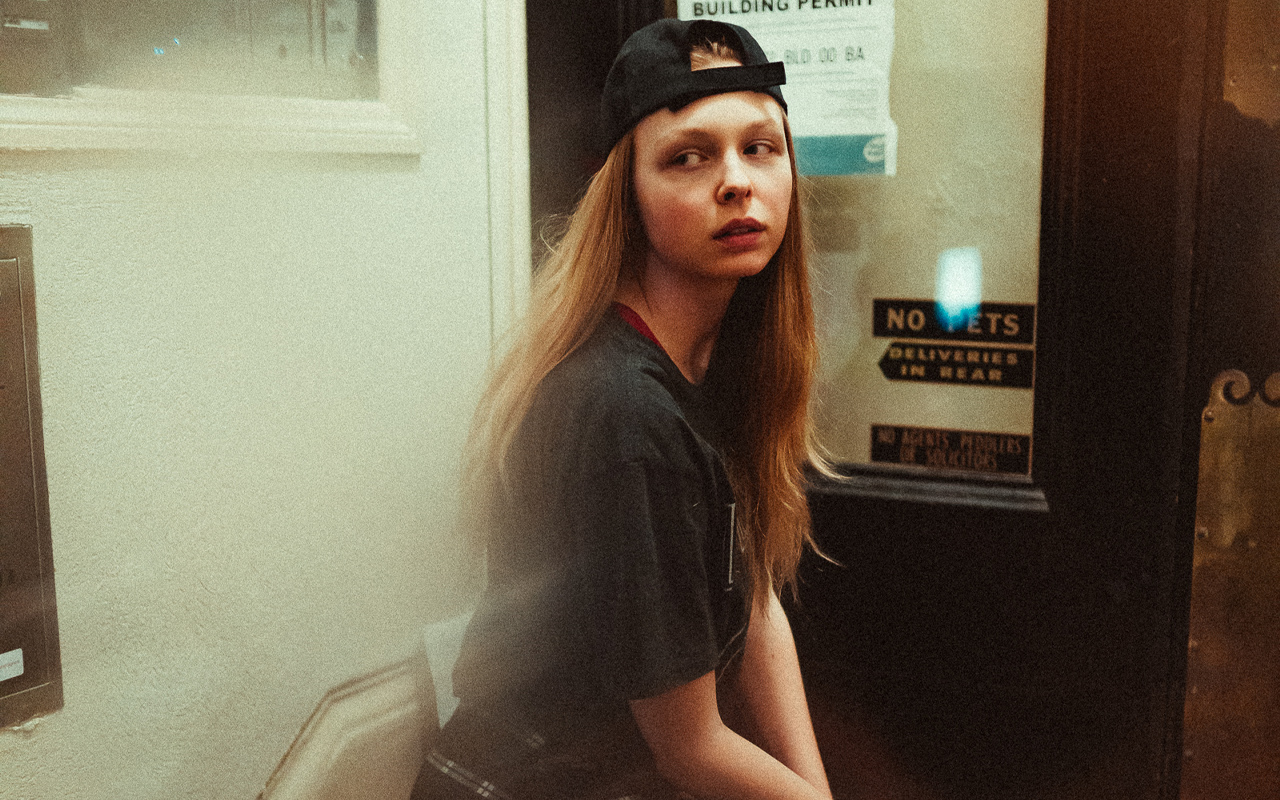
Rachel Romu, model and accessibility advocate
“This is my first Pride back in my hometown in North Western Ontario, so having so much of the event turn digital is almost ideal. My Pride plans have changed hugely as a result of physical distancing—I’ve played the trans stage at Pride Toronto and always go to see performers, but the need for physical distancing, especially as someone with vulnerable health, has led me to leave Toronto all together for a bit. The need for physical distancing has made my community accessible to me despite the fact that I’m currently an 18-hour drive away from Toronto. It is huge that I get to still feel that connection regardless of how my individual life has had to change to protect my health.
“I’m thankful that the world has fostered more accessibility for entertainment experiences by the surge in streaming as a result of COVID-19, but a part of my heart resents that there wasn’t this access in the first place. I think about how meaningful it would have been to stream a concert when I was bedridden and recovering from spine surgery, or how grounding it would have been to have a virtual night out while I was stuck in the hospital for so long. Accessibility seems to only be built when it’s about abled peoples’ convenience or needs. Asking for accommodations at work is risky, and disabled people are always at risk of losing out on job opportunities if they do so. Sometimes it can be invasive, where medical documents are required even. Yet as soon as everyone’s health matters, these accommodations that were apparently ‘too difficult’ or ‘unideal’ to implement for those with disabilities are adopted across the board.
Virtual accessibility is amazing, necessary, but it can still be improved. The use of social media has changed so much as a result of the pandemic which is also shining a light on the holes in digital accessibility. For example, Instagram stories are not compatible with most screen reading software, livestreams don’t have closed captioning or sign language interpretation, but as the usage of these platforms continues to evolve, I hope the accessibility will as well!”
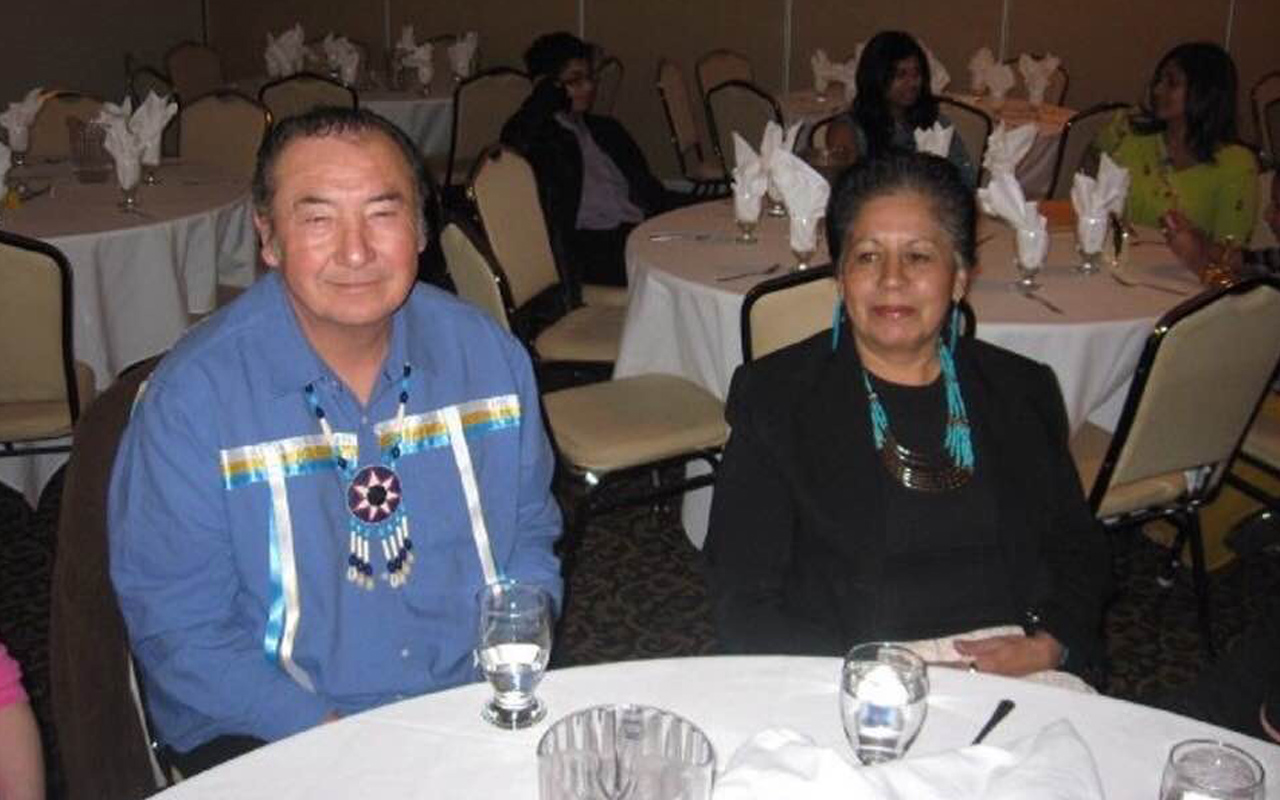
Linda Brass, elder, Diamond Willow Youth Lodge
“When I found out my son was gay, at first I was uncomfortable. But my husband and I started to speak with him and his siblings more to understand where he was coming from. At that time, we became more aware of the suicide rates among people who are gay, sometimes in fear of not being able to tell their parents and being accepted. I love him and wanted to see him happy.
“My family and I work with Miskanawah’s Diamond Willow Youth Lodge in Calgary. We take part in a program called Elder’s Hours, which is a time for smudging and healing. The lodge has posted its Elder’s Hours on the Calgary Pride community calendar. To have our events linked to Pride means that Indigenous individuals can be acknowledged, not to be labelled, but to be accepted in who they are as a man, woman, bisexual, transgender person or anything else. In Indigenous cultures, before individuals were called “queer/gay/lesbian/etc.” they were accepted and thought of as gifted people in the tribe. Many nations do not accept them today, but our teachings say that everyone has both male and female energy.
“Before COVID-19, we were able to share in life with people around the circle during Elder’s Hours. We were able to hug them, ask how they are, how their families are, and eat at the table together. Now we have to rely on virtual Elder’s Hours and phone calls as we extend our true love, care and compassion. This Pride, I hope our virtual Elder’s Hours can bring more awareness to not only to Indigenous queer individuals but also to their families.
“We are at a place in history that we should not be ashamed of who we are and can be proud of each other instead. Growing up in the 1950s and 1960s, I believe we need to become more aware and accepting of queer people as it was hard enough being an Indigenous person back then. I know that those who were both Indigenous and queer had a very hard time getting jobs, finding housing and just being in society. Now it is time to talk about that pain.”


